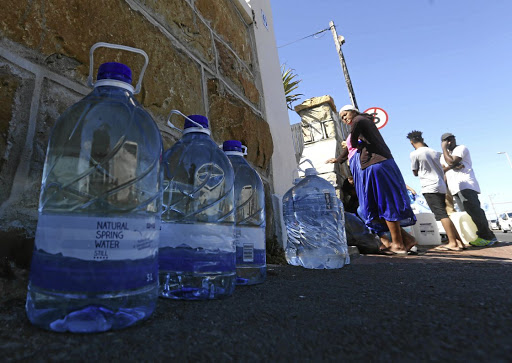As the impact of the drought looms, the premier of the Western Cape, Helen Zille, has written to President Jacob Zuma requesting that the Western Cape be declared a national disaster area and to assist with the handling of the water crisis in the province. She further outlined the interventions which will be adopted in order to prevent Day Zero.
Zille asserted the need to adequately asses the nightmare that thousands of Capetonians will face when they are forced queue at approximately 200 water distribution points when once Day Zero arrives.
To assist with managing the disaster, the premier is scheduled to meet with the South African National Defence Force (army), the South African Police Service (SAPS), the State Security Agency (SSA) and the other security agencies to seek assistance with managing the disaster.
Speaking at a media briefing on Monday, the premier said that should Cape Town’s taps run dry; the challenge will exceed anything any other major city has had to face, since the Second World War and 911.
Despite Day Zero being brought forward to the April 12, 2018, the City has warned that residents are still not limiting their daily water consumption.
Zille also announced that the South African Breweries will be distributing 12 million bottles of water to the City’s neediest residents.
“The spring runs 24 hours and the South African Breweries has a license to produce beer and of course there is no better opportunity than to bottle that perfect spring water in the right circumstances to help us through this desperate time.”
“Capetonians are still using more than 6600 million litres of water per day, which is being reduced to about 450 million liters per day to avoid Day Zero. This means that everybody must use 50 liters per person per day.”
SA Breweries will distribute water to places such as old age homes and distribution points.
South African Breweries’ John Stenzler says that as a business they need to contribute in assisting the crisis, they currently have over 4000 people collecting water weekly and have reduced the water usage in their product.
“We [are] in a business that produces beer, if Day Zero [arrives] comes, we cannot [only] be business we need to provide to the community as well. As water is not a commodity it’s a [human] right. The labels need to be [made] very clear [that] it’s a bottle or container of water [and not mistaken for] beer,” added Stenzler.
He says that they have approached from their supplier requesting sponsors for labels and tops, there then might a tiny market label on the water bottle.
“One of the biggest offers of help has come from the agricultural industry across South Africa, without the support of farms our owners [in the Western Cape] would not have been where they are now. Especially feed for life, which has enabled the life stock to say alive,” says Zille.
The province is also looking for assistance with transport and storage, as many people have come forward with ideas. However, she says that the only option is to avoid day zero.
“South Africans are seemingly bad at changing our behaviour. There is no injection, anti-retro or anything you can take either is water or there is no water,” she ends.






 WhatsApp us
WhatsApp us 

